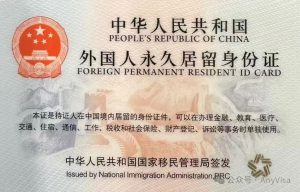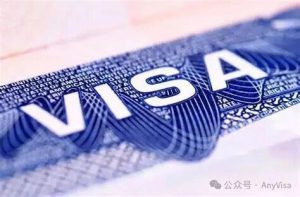What Concerns You Most After 5+ Years of Living in China?
🌏 Many expats living in China for over five years express a common concern—not language or culture—but the lingering uncertainty around their residency status. Despite integrating well into daily life, their biggest unease stems from the instability of their legal identity.
Some say each visa renewal feels like an “exam”—with all the document preparation, anxious waiting, and the looming risk of sudden departure if denied.
Others feel rooted in China emotionally but still describe life as “unanchored,” tied entirely to a small visa document.
Many simply do not want to leave—but face a future that remains unpredictable.
This is the shared pain of long-term foreign residents: they want to stay, but the lack of a stable identity makes their life feel precarious.

Starting a business is often viewed as a path to long-term residence. However, company registration is just the beginning—ongoing financial and tax compliance add recurring burdens. If the business isn’t sustainable, this route may introduce more pressure than relief.
2️⃣ Difficulties for Freelancers
Freelancers seeking independence from employers face mismatched visa policies. Though their income is legal, their residency may not be—creating anxiety during every border crossing.
3️⃣ Age Barrier Post-60
Professionals over 60 often discover they’re ineligible for work visas, regardless of health or expertise. This forces premature retirement planning or relocation, even when they wish to stay and contribute.
4️⃣ Nomadic Living Limitations
Some just want to enjoy the lifestyle, culture, and environment China offers. But tourist or family visit visas are short-term and require constant renewals—unsustainable for long-term digital nomads or semi-retirees.
👉 Despite appearing distinct, all these issues point to the same root cause: restrictions on visas and residency status.

✅ No More Visa Stress – No renewals, no fear of rejection.
✅ Age-Independent Residency – Remain in China after 60 without disruptions.
✅ Flexible Employment – Change jobs freely or take breaks without reapplying.
✅ Streamlined Entrepreneurship – Easier registration and compliance.
✅ Family Stability – Easier access to education, healthcare, and social insurance.
✅ Secure Asset Management – Smoother property and financial dealings.
✅ Frictionless Travel – Fast-track self-service immigration channels.

- Multiple Pathways to Permanent Residency
Married to a Chinese citizen for five years, residing in China for five consecutive years (9+ months per year). This is one of the most common and stable options.
2. Long-Term Employment Path
Having worked in China continuously for four years, with residency of 6+ months annually, and meeting salary and tax benchmarks in a qualifying job aligned with national talent demand.
3. High-Level Talent Category
Professionals in fields such as education, science, healthcare, culture, or sports with significant contributions can be recommended by their institutions.
4. Investor-Based Route
Those with long-term, stable investments and consistent tax records within qualified scales can apply under this category.
5. Special Contribution Track
Individuals with exceptional contributions to China’s economy, technology, or society may be nominated by governmental bodies. Though rare, the policy is supportive.
6. PhD Employment Pathway
PhD graduates working in cities like Shanghai, Shenzhen, or Beijing can apply under a doctoral talent track—spouses and children can apply jointly.
📌 While application criteria are strict, with proper planning and qualification, the success rate can be significantly improved.

- Is It Time to Plan for Security?
● Or is it time to secure a long-term identity for yourself and your family?
👉 Permanent residency isn’t a dream—it’s a safety net. Start early, and gain true peace of mind for your future in China: secure, free, and without compromise.

